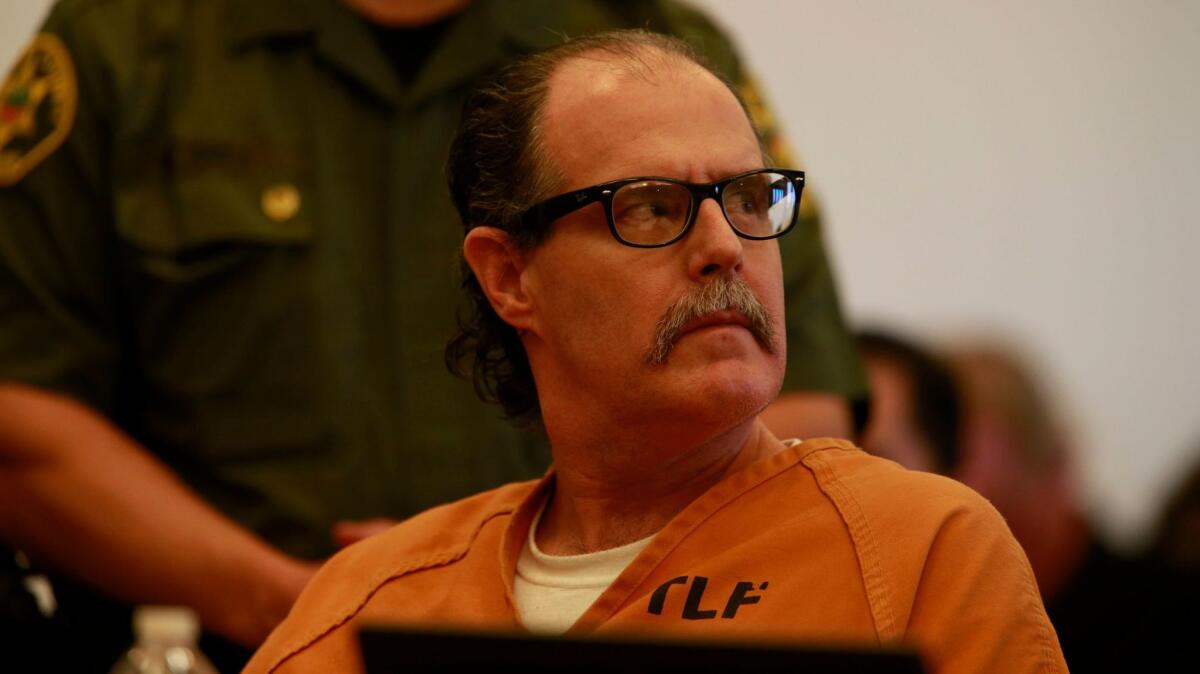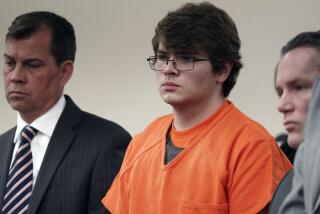State to seek death penalty against gunman who killed 8 in Seal Beach rampage

A gunman’s rampage at a Seal Beach beauty salon more than five years ago shattered families and scarred the seaside community. Then an ensuing legal saga became an epic tale of controversy and scandal.
But some mourners believed that closure could at least be found in a plea deal that would put the killer away for life and end the legal proceedings.
Despite their requests, the California attorney general’s office announced Wednesday that it would seek the death penalty for Scott Dekraai.
“This tragic event has caused so much harm to far too many families,” Atty. Gen. Xavier Becerra said in a statement.
“After weighing the evidence, considering the law and the responsibilities of my office, I have concluded that the appropriate course of action is to seek the death penalty in this case,” Becerra added.
The decision frustrated some victims’ family members, who have held out hope that their prolonged journey with the criminal courts would soon be over.
“It’s miserable — there are no words,” said Tom Stretz, 72, whose stepdaughter was among those killed. His wife, Hattie, 78, was also shot but survived.
“Every time any element of the case comes up, we just regurgitate the same feelings,” Stretz said. “Anger, sadness, disbelief — it’s almost surreal. It’s just hard to understand how something that was so slam-dunk could have reached where this has.”
The killings occurred on an October afternoon in 2011, when Dekraai, 41, burst into the Salon Meritage on Pacific Coast Highway and opened fire. His ex-wife, Michelle Fournier, 48, was killed, along with seven others.
Dekraai and Fournier, longtime residents of the area, were embroiled in a custody dispute over their 8-year-old son.
The former tugboat crewman offered to plead guilty in exchange for a sentence of life in prison. But the deal was rejected by the Orange County district attorney’s office.
Prosecutors hoped to secure a death sentence by using recordings of Dekraai’s conversations with a jailhouse informant.
Such evidence can be allowed in court if the informant was not initially planted at the direction of authorities.
But Dekraai’s attorney argued that the informant had been intentionally placed in close proximity to his client to perhaps extract a confession. An Orange County Superior Court judge ruled that key information about the informant was not turned over to the defense as required.
The judge recused the Orange County district attorney’s office from the case. An appeals court upheld that decision.
The state attorney general then assumed responsibility for the penalty phase.
In addition to Fournier, the others killed were Victoria Buzzo, 54; David Caouette, 64; Laura Elody, 46; Michele Fast, 47; Randy Fannin, 62; Lucia Kondas, 65; and Christy Wilson, 47.
Fournier’s daughter Chelsea Huff, who has been in favor of the death penalty for Dekraai, declined to comment on the attorney general’s decision. Huff became the legal guardian to Fournier and Dekraai’s son.
Orange County Dist. Atty. Tony Rackauckas said in a statement that he “wholeheartedly” supports Becerra’s decision.
“Dekraai is a perfect example of why the death penalty exists,” he said. “If the perpetrator of a mass slaughter of innocent people doesn’t deserve the death penalty, it’s hard to imagine a criminal who would.”
UPDATES:
8:35 p.m.: This article has been updated with additional comments from officials and victims’ families, as well as more information about the case itself.
This article was originally published at 1:30 p.m.
More to Read
Sign up for Essential California
The most important California stories and recommendations in your inbox every morning.
You may occasionally receive promotional content from the Los Angeles Times.











